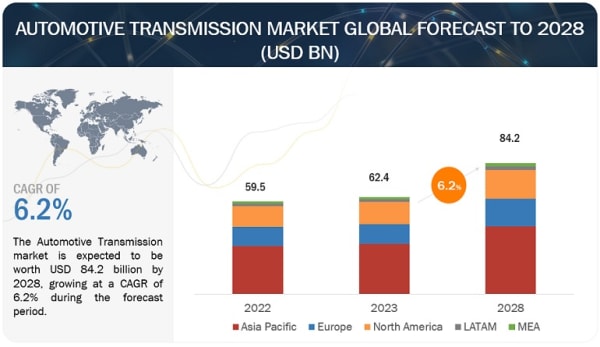Electric Vehicles Gain Traction Amidst Market Fluctuations: A Comprehensive Analysis of New Car Registrations in March 2024
The automotive industry continues to witness a transformative shift towards electrification, with battery-electric vehicles (BEVs) playing an increasingly pivotal role in the global transportation landscape. According to the latest data released by the European Automobile Manufacturers' Association (ACEA), new car registrations in the European Union (EU), the United Kingdom (UK), and the European Free Trade Association (EFTA) experienced a moderate increase of 5.2% in March 2024 compared to the same month in 2023. Notably, BEVs continued to gain market share, accounting for a significant 13% of new car registrations in March 2024.

Overall Market Performance
Overall, the European automotive market displayed signs of recovery in March 2024, with total new car registrations reaching 1,125,240 units. This represents a 5.2% increase compared to the 1,069,686 units registered in March 2023. The growth was primarily driven by strong performances in Germany, Spain, and Italy, which offset declines in France and the UK.

Among the major markets, Germany remained the largest, with new car registrations totaling 323,083 units in March 2024, a 4.9% increase year-over-year. Spain experienced a surge of 13.2% with 138,893 new car registrations, while Italy posted a modest 2.3% increase to 140,239 units. In contrast, France saw a 6.5% decline to 158,789 units, and the UK registered a 2.2% decrease to 168,604 units.
Rise of Battery-Electric Vehicles
The electrification trend in the automotive industry is accelerating, with BEVs continuing to gain popularity across Europe. In March 2024, BEV registrations soared by 43.4% year-over-year to reach 145,600 units, representing a market share of 13%. This remarkable growth was fueled by strong demand for compact and mid-size BEVs in particular.
Germany led the BEV market in March 2024, with 49,824 units registered, followed by the UK with 25,077 units and Norway with 14,074 units. France and Spain also experienced significant growth in BEV registrations, with 21,289 units and 16,254 units, respectively.

Other Powertrain Trends
While BEVs dominated the electrification landscape, other powertrain technologies also saw notable changes in March 2024. Hybrid electric vehicle (HEV) registrations increased by 12.7% year-over-year to 424,801 units, accounting for a 37.8% market share. Plug-in hybrid electric vehicle (PHEV) registrations, however, declined by 1.1% to 109,716 units.
Diesel-powered vehicles continued to decline in popularity, with registrations falling by 11.6% year-over-year to 345,483 units. This decline was particularly pronounced in France, where diesel registrations plummeted by 30.8%.
Market Challenges and Outlook
Despite the overall growth in new car registrations and the rise of BEVs, the automotive industry continues to face challenges. The ongoing semiconductor shortage has disrupted production and supply chains, leading to extended delivery times and reduced availability of certain models. Economic uncertainty and rising inflation have also dampened consumer confidence in some markets.
Looking ahead, the electrification trend is expected to continue in the coming months and years. Governments across Europe are implementing policies to promote the adoption of BEVs and other low-emission vehicles. However, the availability of charging infrastructure, battery costs, and range anxiety remain key factors that need to be addressed to sustain this growth.
Regional Analysis
Western Europe: The Western European market, including countries such as Germany, France, Spain, and Italy, saw a moderate increase in new car registrations in March 2024. Germany and Spain were major contributors to this growth, offsetting declines in France and the UK. BEVs continued to gain market share in Western Europe, particularly in Germany and Spain.
Central and Eastern Europe: New car registrations in Central and Eastern Europe also showed positive growth in March 2024, with countries like Poland, Czech Republic, and Hungary experiencing strong demand. BEV registrations increased significantly in this region, driven by government incentives and improving charging infrastructure.
Northern Europe: The Northern European market, including countries such as Norway, Sweden, and Finland, has been a pioneer in the adoption of electric vehicles. In March 2024, BEVs accounted for a substantial market share in these countries, with Norway leading the way with nearly 90% of new car registrations being electric.
Southern Europe: Southern European countries such as Spain, Italy, and Greece experienced varying trends in March 2024. While Spain showed strong growth in new car registrations and BEV adoption, Italy faced a modest decline in overall registrations. Greece, on the other hand, saw a significant increase in BEV registrations.
The European automotive market is undergoing a transformative shift towards electrification, with BEVs leading the charge. While overall new car registrations have shown moderate growth in March 2024, the rise of BEVs is gaining momentum across different regions. Governments, manufacturers, and consumers alike are playing a role in accelerating this transition. Addressing challenges such as infrastructure availability, battery costs, and range anxiety will be crucial to sustaining this growth and achieving a more sustainable transportation future.
